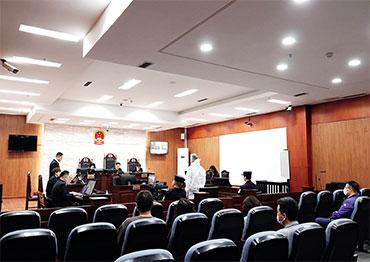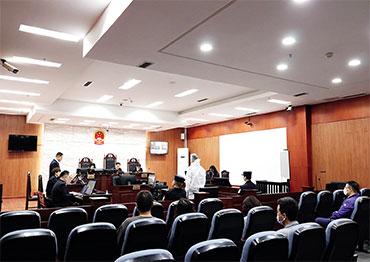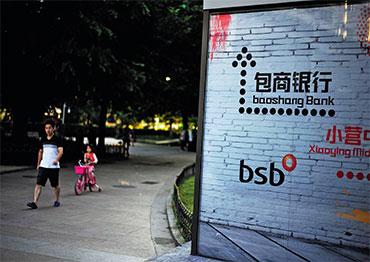On May 12, the Hohhot Intermediate People’s Court in Inner Mongolia Autonomous Region convicted Xue Jining, former Party chief and director of the Inner Mongolia Bureau of the China Banking and Insurance Regulatory Commission (CBIRC) of accepting cash and property worth more than 400 million yuan (US$62m) over 13 years, a record in the financial regulatory system.
The previous record holder was Song Jianji, former deputy director of the same bureau, who was charged in 2020 with accepting more than 229 million yuan (US$35m) in bribes over 22 years.
Along with Chen Zhitao, former deputy director of the bureau, the trio was investigated in June 2020. Previously, authorities had investigated several senior officials of the bureau, with virtually all found to be corrupt. Supervisors used their power for personal gain, resulting in serious financial risks.
“As gatekeepers of financial order and security, some leaders caused serious lapses in supervision,” said Yu Yun, deputy director for discipline inspection at the CBIRC. Inner Mongolia is not the only region to experience a failure of financial oversight. Since 2019, many senior officials in Guangxi Zhuang Autonomous Region and Shanxi and Fujian provinces were detained.
At the end of 2020, legal site China Judgments Online posted the case of Liu Jianming, former Party committee member of the CBIRC’s Inner Mongolia bureau, which involved a web of collusion between Baoshang Bank, financial regulators and companies under Tomorrow Holding, a private conglomerate owned by Chinese-Canadian businessman Xiao Jianhua before he went missing from Hong Kong in 2017.
More than a third of Liu Jianming’s bribes came from Baoshang executives and Tomorrow Holding subsidiaries. From 2010 to 2017, Wei Zhanyuan, former vice president of Baoshang, Li Zhenxi, the bank’s former chairman, and Wang Huiping, former bank president, bribed Liu with vehicles, cash and real estate, according to the verdict.
On May 24, 2019, the People’s Bank of China (PBoC) and the CBIRC seized control of Baoshang due to its serious credit risks. The bank was insolvent, and in August 2020 filed for bankruptcy. In November 2020, the CBIRC “agreed in principle that Baoshang should file for bankruptcy.”
“Before the takeover, Baoshang had already experienced a severe credit crisis, and the risks to the over 400 small- and medium-sized financial institutions among its customers could easily create a chain reaction. If these risks were triggered, the cost of dealing with them would be even greater,” Wang Yanxing, a senior research fellow at the Chongyang Institute for Financial Studies at the Renmin University of China in Beijing, told NewsChina.
Rural banks were among the most severely affected by supervision lapses. In 2006, the CBIRC relaxed banking institutions’ access to rural areas, and Baoshang Bank was among the first to take advantage.
According to the Interim Regulations on the Management of Village and Township Banks in 2007, village and township banks implemented a principal sponsor system that required a banking financial institution. The CBIRC’s Inner Mongolia bureau helped approve new village and township banks initiated by Baoshang Bank. The bank set up 11 rural banks in 2011 alone, bringing its total to 27.
According to CBIRC regulations, only one village or township bank is allowed per county. Former leaders at the CBIRC’s Inner Mongolia bureau approved two or more village banks in counties in the city of Hohhot, the region’s capital.
In response to the chaotic management of village banks, the CBIRC launched an investigation and took remedial action from 2018 to 2020, focusing on high-risk institutions that were restructured into rural commercial banks and institutions that revealed poor management of shareholder equity.
According to CBIRC data released in March 2020, 3,898 smaller banks in rural areas were inspected, and 281 institutions received administrative punishment with fines totaling 150 million yuan (US$23m). At least 711 people were given official warnings, dismissed and fined a combined 20.39 million yuan (US$3.15m).
At the turn of the century, reforms aimed to transform China’s network of rural credit cooperatives – or PBoC-sanctioned grassroots banks that provided credit lines and savings accounts in rural areas – into bigger city commercial banks. Baoshang Bank was founded out of 17 urban credit cooperatives including Baotou Science and Technology City Credit Cooperatives.
Tomorrow Holding, Baoshang’s largest shareholder, took control of the bank during this period. At the time, 79 institutions held 97.05 percent of Baoshang’s shares, but 35 of these belonged to Tomorrow Holding. This gave the conglomerate 89.27 percent of shares, far exceeding the 50 percent needed for control.
Local financial regulators not only accepted bribes but also influenced the bank’s hiring and contracts. Some people obtained huge loans from Baoshang through companies they controlled. Baoshang also started its own law firms, which charged high fees from the banks they did business with.
Baoshang’s risk management system and internal controls were practically useless, and routine inspections by local banking and insurance regulators were perfunctory. The former Inner Mongolia banking regulatory bureau and banking regulatory authorities in the city of Baotou carried out more than 50 on-site inspections of Baoshang. Serious infractions were discovered, but punishments were never imposed.
While many complaints were filed against Baoshang over the years, regulators protected the bank and covered up misdeeds.
According to a report by China Discipline Inspection and Supervision News, Xue Jining, former Party chief and director of the CBIRC Inner Mongolia bureau, destroyed evidence of bribery among Baoshang’s leaders and deliberately overlooked their illegal activities.
Baoshang has yet to release annual financial reports for 2017 and 2018, and local regulatory authorities have not issued any punitive measures.
“Financial corruption is insidious, and perpetrators use many cunning ways to cover illegal activities,” Zhuang Deshui, deputy director of the Peking University Clean Government Center. “Financial corruption takes a group effort. People inside and outside the financial sector colluded to avoid external supervision and regulation.”
“Last year, the Central Commission for Discipline Inspection, China’s top anti-graft watchdog, made fighting corruption in the financial sector a priority,” he said, adding that regulators are responsible for supervising and managing the financial sector, preventing risks and ensuring financial safety. “If regulation fails, the consequences are disastrous,” Zhuang said.
Zhao Rulin, former deputy Party chief of the CBIRC’s Guangxi bureau, became the first senior official in the regulatory system to be ousted after the CBIRC reshuffle in 2019. The next year, Zhang Anshun, former head of the CBIRC Shanxi bureau, Zhou Wenjie, former deputy director of the Shanghai regulatory bureau and Liu Wenyi, former senior inspector of the Liaoning provincial regulatory bureau, were also investigated.
“Financial corruption is an extreme manifestation of weakened financial supervision,” Wei Changdong, a professor at the Law Institute of the Shanghai Academy of Social Sciences, told NewsChina. “The key to combatting corruption lies in the system. It’s crucial to make regulation a real deterrence.”
“We need to be innovative and use forceful and independent ways to oversee the sector,” Zhuang Deshui said. He said that fighting corruption in the financial sector has to break away from previous methods, and regulators should not be satisfied with catching a few bad people.
In his opinion, the banking and insurance regulatory agencies exert great influence on the decision-making and supervision of local financial institutions, and he has called for more separation between decision-making and supervision.
“It’s crucial to reform the financial system to gradually reduce the room for corruption,” he said.
“The positioning of regulation needs to be further clarified,” Liu Xiaochun, vice president of Shanghai Finance Institute, told NewsChina.
He added that the banking and insurance regulatory system is independently responsible for supervising and managing the banking and insurance industries, not leading them. “Regulators should respect the autonomy of [banks and insurance companies under their supervision.]”
Financial supervision involves different roles. According to the China Financial Stability Report 2020 issued by the PBoC, local governments are responsible for mitigating local risks, financial regulatory departments carry out supervision, and the PBoC plays the role of lender of last resort.
This division of responsibility poses challenges in practice. The first is the division between central and local authorities.
“Due to information asymmetry and other reasons, it’s often difficult for local governments to know about the hidden risks before things blow up. Once risks are exposed, however, local governments have to bear the responsibility for the aftermath,” Wang Yixin, vice governor of Shanxi Province, said during a forum at Expo Central China 2021, an investment and trade expo held in Taiyuan, Shanxi Province on May 21.
Wang added that local governments would be incentivized to mitigate financial risks once the power and responsibilities in the financial regulatory system are well defined. “It will stifle financial risks and forestall financial turbulence more effectively,” he said.

 Old Version
Old Version

